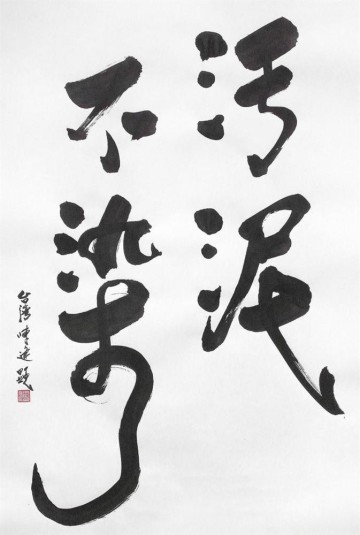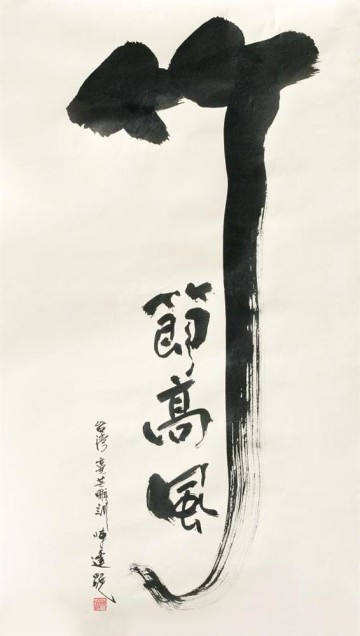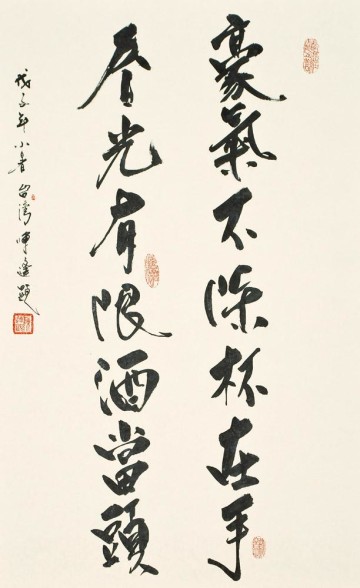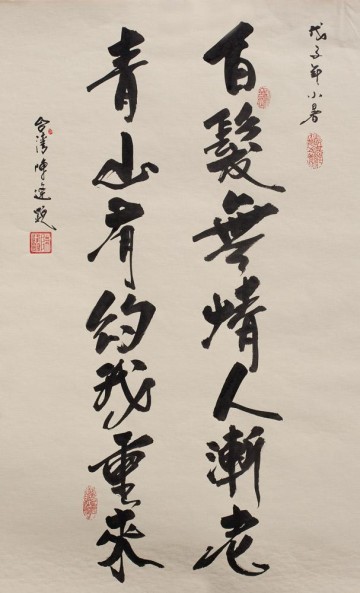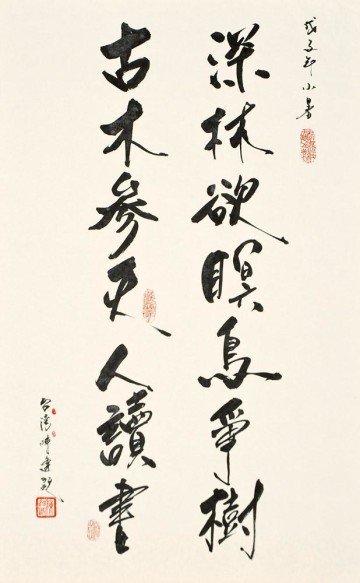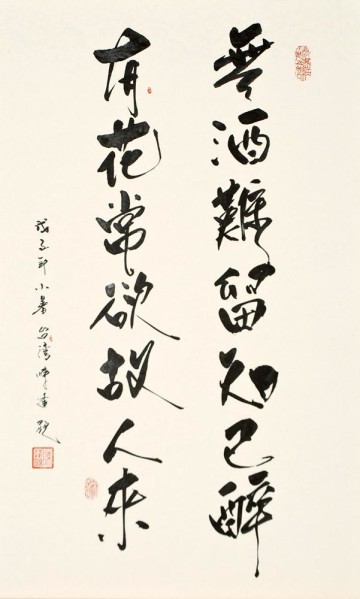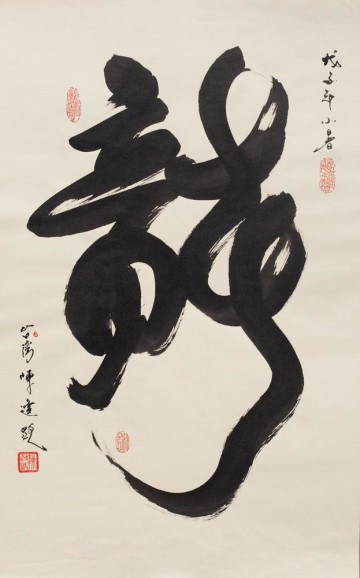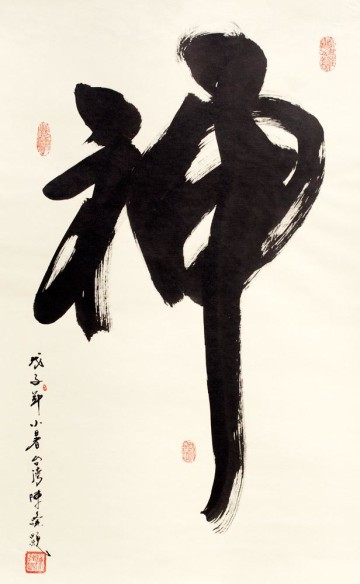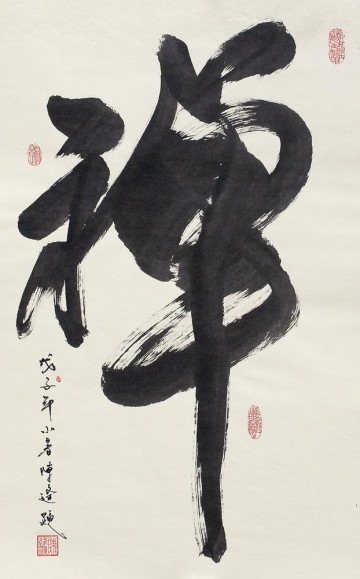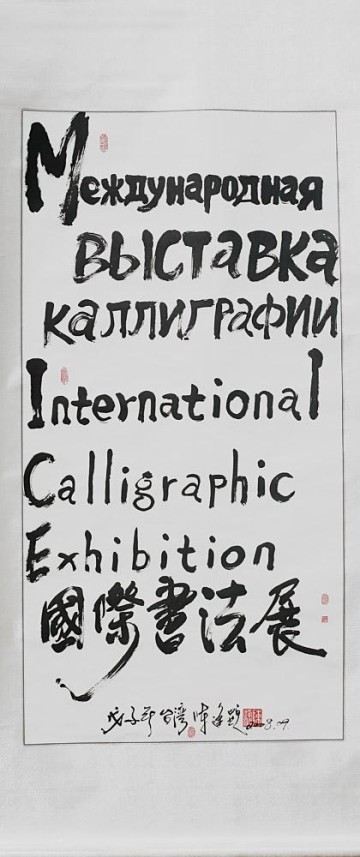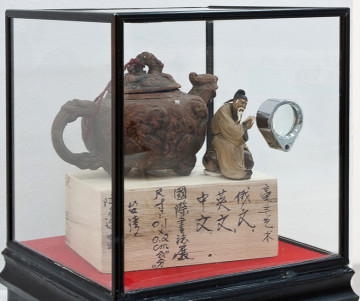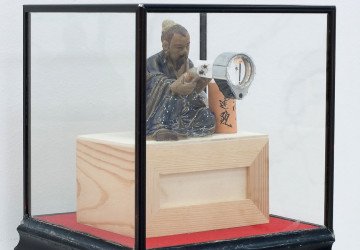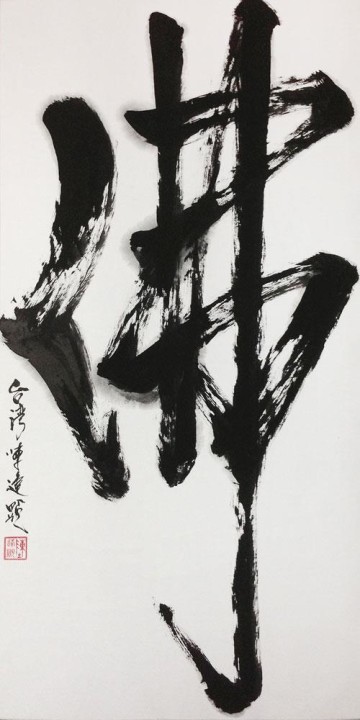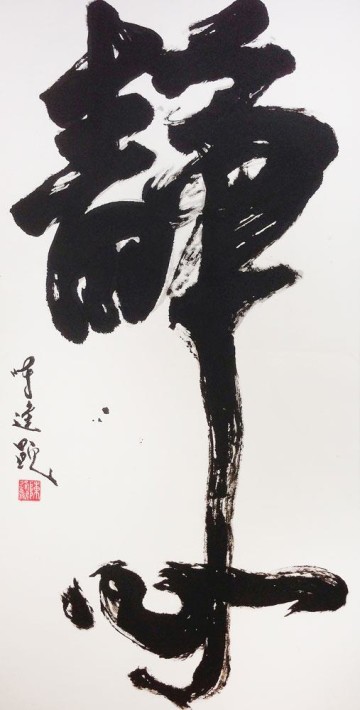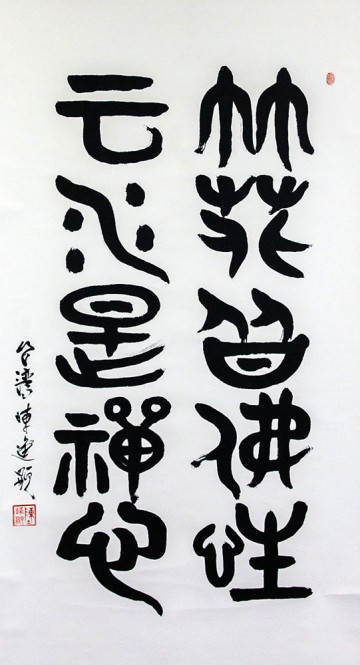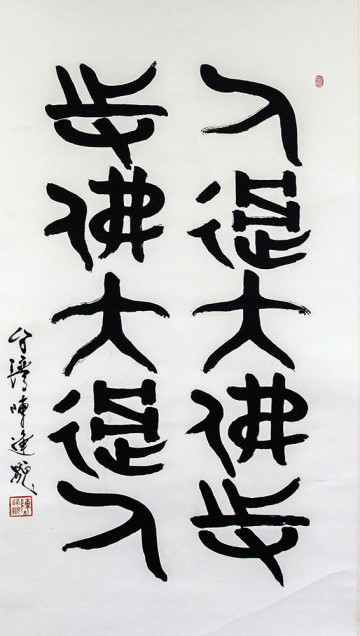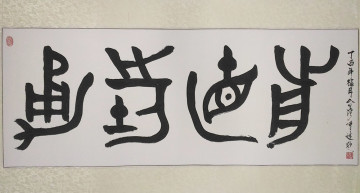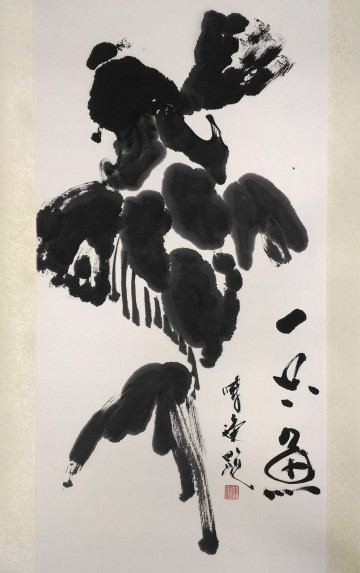Chen Forng Shean
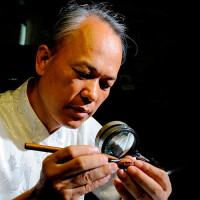
Chen Forng Shean
Taipei, Taiwan
Calligrapher, sculptor, microminiature-painter
The Expression of Lines in Calligraphy Art
Different works of art create their image with its unique art language. Calligraphy can convey aesthetic feelings via a simple language: strokes. The emotions of strokes are presented through the form of handing calligraphy. It’s the basic concept to appreciate the rhythm and dynamism of vivid strokes. The structure of strokes constitutes the form of writing in calligraphy. The various changes of strokes means the dynamism of calligraphy. This is the most important presentation to convey the art of calligraphy. Thus, handwriting in calligraphy is like the artist’s emotional movement. Calligraphers may reveal their feelings through the tip of the brush used in calligraphy. Viewers may feel the same way as calligraphers do. The revelation of the power of the brush is always a gem to both the calligraphers and the viewers. The combination of strokes is a bridge between artists and viewers and also the most touching part as a work of art.
Author works
A Chinese Idiom, meaning "A Gentlemen Who Has Good Character"
Paper, Chinese brush, ink, 38x68 cm, 2009Antithetical Couplet
Chinese Xuan Paper / Rice Paper, Chinese brush and ink, 42x64 cm, September 2008.Antithetical Couplet
Chinese Xuan Paper / Rice Paper, Chinese brush and ink, 42x64 cm, September 2008.Antithetical Couplet
Chinese Xuan Paper / Rice Paper, Chinese brush and ink, 42x64 cm, September 2008.Antithetical Couplet
Chinese Xuan Paper / Rice Paper, Chinese brush and ink, 42x64 cm, September 2008."Go forward without fear"
Style: ancient Zhuanshu (Seal script) calligraphyMaterials: Xuan paper, ink, seal
Dimensions: 99x60 cm
Year of creation: 2018
Calligraphy is a way to discover the artist's mindset and character. The modern definition of calligraphy is "an art in which individual symbols are in agreement and harmony, expressive, and written in a masterly manner". "Calligraphy is an aesthetic process limited by three dimensions: person, time, and place, namely by the artist's skills, the materials used, and the propagation speed."
Fish
Style: Guohua water-and-ink paintingMaterial: Xuan paper, ink, pigment, seal
Dimensions: 139x45 cm
Year of creation: 2018
Monochrome, or Chinese ink-and-water, painting is the main style, or genre, of Chinese painting, which is more narrowly referred to as guohua, or traditional Chinese painting. The style is currently practiced in many regions of Asia. The most basic of monochrome paintings are created with merely water and ink, using the black and white tonality.
Calligraphy is a remedy and mental gymnastics.
